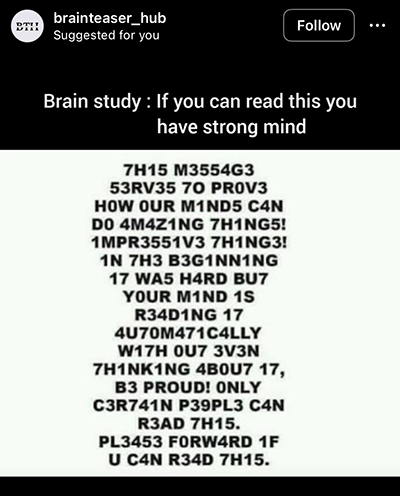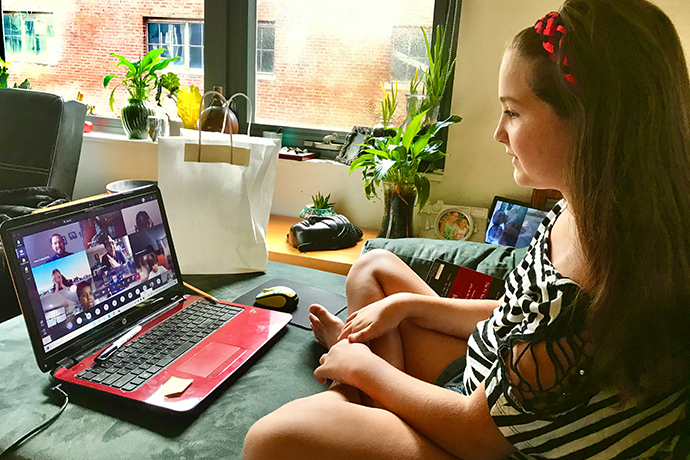Sadly summer is almost over. 🙁 With the new school year, I’d like to spend the next month or two focusing on back to school articles and resources that might be helpful for parents, teachers, librarians, and kids. This email I want to start with a focus on digital citizenship, what it is from a kid point of view and why it matters. But I also found an instructive story about inventing gloves that can do American Sign Language. And a great story about Sergei Krikalev, a Soviet astronaut who returned to earth as a Russian astronaut. Plus a Dad joke.
Digital Citizenship
The start of a new school year is a good time to talk about how to behave online. How to make the most of what’s online while protecting your privacy. As well as being productive and respectful to others. Turns out there’s several different ways to view digital citizenship. And several different programs.
Probably the biggest agreed-upon skill is being aware online. Aware of who you are interacting with, whether in conversation or a website or social media. Being aware of any personal information you give out. That includes others asking for your personal information. Especially in cases where that information isn’t needed.
Respect and self-control also are important online. Not every comment online needs a response, for example. And computers have a way of disconnecting us from our real lives. We might say things that we would never say in person. That’s a critical distinction to notice. Talking with people in a respectful and positive way is so important. It helps to reduce any disconnection with what we’d do in our daily lives offline. Being positive also includes accepting differences and forgiving others.
I also liked the ISTE video below. It encourages us to talk about digital citizenship as a way to make our communities better. That people online should be inclusive, informed, engaged in society, balanced, and safe. That online safety is one important piece of the puzzle.
Here are some interesting links that I found online that are useful.
Digital Citizenship Curriculum – Common Sense Media
https://www.commonsense.org/education/digital-citizenship/curriculum
Technological Literacy – PBS Learning Media
https://ny.pbslearningmedia.org/subjects/engineering–technology/technological-literacy/digital-citizenship/?rank\_by=recency
Developing Students’ Digital Citizenship Skills
https://www.edutopia.org/article/teaching-digital-citizenship-skills/
The Growing Importance of Digital Citizenship
https://www.edsurge.com/news/2024-02-19-the-growing-importance-of-digital-citizenship
Make Digital Citizenship about the Do’s, not the Don’ts – ISTE
https://youtu.be/tZeNr1q5QTU?si=-mzGBoguq8wmFGNH
https://youtu.be/iwKTYHBG5kk?si=5fqErtWOanOGY60h
What is digital citizenship?
https://blog.avast.com/what-is-digital-citizenship-avast
CPTC Library/Learning Resource Center: Digital Citizenship / Netiquette
https://cptc.libguides.com/c.php?g=1100394&p=8915617
Python Problems (and Solutions)
For beginner programmers, searching online for “beginner coding problems” surfaces many interesting sites. The results link to sites that offer coding problems for beginner programmers. The idea is simple: it’s a way to practice and to learn programming. Python usually is the default language, for various reasons. Mostly because Python is a language that beginners can understand. Yet professional programmers also use Python in production environments.
In looking at a dozen sites with beginner coding problems, three looked interesting. They have few or no ads. They provide solutions. And the first two links include editors where you can type and process your code. The third site walks you through all the solutions.
If you search online yourself, check details that might validate the site. For example, the CodingBat site was set up by a Stanford University lecturer in 2017. The problems likely apply well enough for beginners. But they may not represent the latest version of Python. Or the latest methods of working with Python.
CodingBat Code Practice
https://codingbat.com/python
Python Programming Challenges
https://pythonprinciples.com/challenges/
Python Coding Challenges For Beginner Developers – Code and Explanations
https://www.freecodecamp.org/news/python-coding-challenges-for-beginners/
Sergei Krikalev: An Astronaut Without a Country
Sergei Krikalev is a Russian astronaut with a long history of space flight. He’s also known for being alone on the Mir space station when the Soviet Union collapsed on December 26, 1991. The Soviet space facilities were suddenly in newly independent Kazakhstan. The political chaos that followed meant it took longer for Krikalev to get replaced on the space station. He launched as a Soviet cosmonaut and arrived back on earth as a Russian cosmonaut. On the Mir space station, he spent a total of 311 days alone in space.
But his career as an astronaut is equally interesting. He flew on a US Space Shuttle mission in February 1994. He also was in the first crew to occupy and set up the International Space Station, in December 1998, when they turned the lights on in the US module called Unity. He’s also apparently very good at debugging and fixing space technologies on Mir and the ISS. And he enjoys ham radio, using the technology to talk with people to learn about changes when the Soviet Union collapsed.
In researching Krikalev, I found this part of an interview to be most interesting:
Q: Did you have any big takeaways from your first time in orbit?
Krikalev: I remember from my first flight, when you look down, it is a little more difficult to find things on the surface. When you do it on the map, you have borders and start to use borders as a landmark. But in space, you have no borders. You have only the natural rivers, mountains, beaches, forests, or something like that. You start to understand that in many cases, our separation on Earth is more artificial. We are living on the same surface. When you see a forest fire, you see that smoke is going sometimes for hundreds of kilometers. They cross all borders. There is no wall on this border. If you have disaster on one side, it can easily spread on another side. If you have flooding, it floods an area not looking at the border between different regions or different countries. You start to see that we are more united.
Q: This feeling of being united, how do you think it can be brought back down to Earth?
Krikalev: I think what we do in space together is a good example of how people need to live on the ground. I know that people sometimes start to argue with no good reason; but especially when you are in a harsh environment, you rely on each other and try to help each other. That is how we live in space, and that probably can be a good example for people on the ground. We try to keep this area protected and keep this good example to politicians and maybe other people in my country and your country, showing that is really how we need to live.
Down to Earth: Q and A with Cosmonaut Sergei Krikalev
https://www.nasa.gov/missions/station/iss-research/down-to-earth-q-and-a-with-cosmonaut-sergei-krikalev/
Unity of Space | Down to Earth: Sergei Krikalev
https://youtu.be/o\_jel2vWNAw?si=Xjxl4omQYry92XGU
Sergei Krikalev
https://en.wikipedia.org/wiki/Sergei_Krikalev
Down to Earth: The Astronaut’s Perspective
https://youtu.be/DIkqs9_FK28?si=rbmK4_tjNKTyloHm
This Week
Our Sunday issue this week has fun often offbeat links, for example, there’s kids who have invented a solution for microplastics, the best way to load a dishwasher, a gene that makes fish curious, assessing healthy fat level in kids without using BMI, and giving AI workers the right to warn the public about dangers without being punished. and more. Look for it this Sunday!


